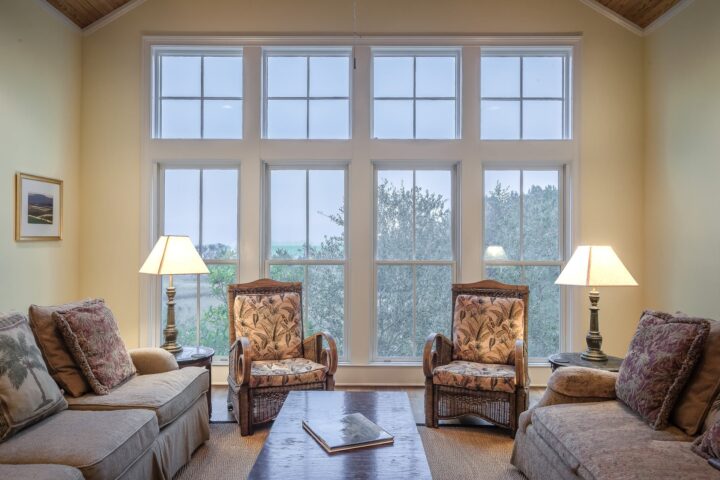Updating or replacing the windows in your home is a substantial investment that can significantly enhance both the aesthetic appeal and functionality of your living space. Before diving into the process of installing new windows, it’s crucial to consider several factors that can influence the outcome and long-term satisfaction with your decision. From energy efficiency to architectural style, the choices you make can impact your home’s comfort, value, and overall ambiance. In this article, we’ll explore a few key considerations to keep in mind before embarking on the journey of installing new windows.
Assessing Energy Efficiency and Insulation
One of the primary considerations when installing new windows is their impact on energy efficiency. Modern windows often come with advanced technologies, such as Low-E coatings and multiple panes, designed to enhance insulation and reduce energy consumption. It’s essential to assess the U-factor and Solar Heat Gain Coefficient (SHGC) of the windows, as these metrics indicate how well the windows insulate against heat transfer and block unwanted solar heat. Choosing windows with a low U-factor and SHGC can contribute to lower energy bills and a more comfortable indoor environment. Additionally, consider the climate in your region; for colder climates, windows with a high insulation value are crucial, while in warmer areas, focus on windows that can block excessive heat.
Understanding Window Styles and Architectural Compatibility
The aesthetic appeal of your home is significantly influenced by the style and design of the windows. Before making a decision, consider the architectural style of your house and choose windows that complement its overall design. There are various window styles, including double-hung, casement, sliding, and bay windows, each offering unique benefits and visual appeal. Double-hung windows, for example, are classic and versatile, while casement windows provide excellent ventilation. Sliding windows are ideal for contemporary designs, and bay windows can add a touch of elegance. It’s crucial to balance personal preferences with architectural coherence to ensure that the new windows seamlessly integrate with the existing structure and enhance the overall curb appeal.
Budgeting for the Project and Long-Term Costs
While the initial cost of new windows is a significant factor, it’s equally important to consider the long-term costs associated with maintenance, energy efficiency, and durability. High-quality windows may have a higher upfront cost, but they often prove to be more cost-effective in the long run due to lower maintenance requirements and enhanced energy efficiency. Consider the material of the window frames – options include vinyl, wood, aluminum, and fiberglass, each with its own set of advantages and disadvantages. Vinyl, for instance, is low-maintenance and energy-efficient, while wood provides a classic look but requires more upkeep. Evaluate your budget not just for the initial purchase but for the ongoing costs and potential return on investment in terms of energy savings and increased property value.
Noise Reduction and Privacy Concerns
Windows play a crucial role in regulating sound penetration from the external environment. If you live in a noisy neighborhood or near a busy street, selecting windows with good soundproofing capabilities is essential for maintaining a peaceful indoor atmosphere. Consider the Sound Transmission Class (STC) rating of the windows, which indicates their ability to reduce sound transmission. Additionally, assess your privacy needs. Different window styles and treatments offer varying levels of privacy. For instance, frosted or tinted glass, along with strategically placed landscaping, can enhance privacy without sacrificing natural light. Balancing noise reduction and privacy concerns ensures that your home remains a tranquil haven.
Installation Process and Professional Assistance
The installation process is a critical phase that can significantly impact the performance and longevity of your new windows. While some homeowners may consider a do-it-yourself approach, professional installation is often recommended to ensure proper sealing, insulation, and alignment. Improper installation can lead to air leaks, water infiltration, and reduced energy efficiency, as the team for window replacement in Saratoga Springs explains. When choosing a professional installer, consider their experience, certifications, and customer reviews. Obtain multiple quotes to compare costs and services, and don’t hesitate to ask for references from previous clients. Additionally, inquire about warranties offered by both the window manufacturer and the installation team. A well-executed installation not only maximizes the benefits of your new windows but also minimizes the risk of future issues.
Ventilation and Natural Light Considerations
Windows are essential for providing natural light and ventilation to your home. When installing new windows, consider the orientation of your house and how sunlight enters each room. Choose window placements that maximize natural light while minimizing glare and heat gain. Additionally, think about ventilation needs in different areas of your home. Casement windows, for example, can provide excellent cross-ventilation, while strategically placed awning or hopper windows allow for airflow even during rain. Understanding the airflow patterns in your home and choosing windows that facilitate proper ventilation contributes to a healthier and more comfortable living environment.
Local Building Codes and Permits
Before diving into the installation process, it’s essential to research and comply with local building codes and permit requirements. Each region may have specific regulations regarding window installations, and obtaining the necessary permits ensures that your project meets safety and structural standards. Check with your local building department to understand the guidelines and requirements for window replacements. Failure to comply with these regulations may result in fines, delays, or even the need to remove and reinstall the windows. Taking the time to navigate and adhere to local building codes is a proactive step that prevents potential complications down the road.
Installing new windows is a significant undertaking that involves careful consideration of various factors. From energy efficiency and architectural compatibility to budgeting and professional installation, each decision contributes to the overall success and satisfaction of the project. By taking the time to assess your specific needs, research options, and plan accordingly, you can transform your home with windows that not only enhance its appearance but also improve its functionality and efficiency. Keep in mind that the right windows contribute not only to the aesthetics of your home but also to your daily comfort and well-being.
















